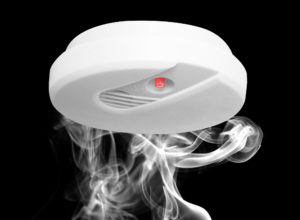A fire is a scary experience for any homeowner. While the number of house fires in the U.S. has steadily declined since the early 2000’s, they still account for millions of dollars in losses and thousands of injuries and fatalities each year.
The good news is there are steps of precaution to be taken that can reduce the occurrence of a house fire. Knowing the most common causes of house fires is the best way to create a prevention plan to ensure the safety of your family and your belongings.
3 of the most common causes of house fires and some tips from AGK Electric in Cary to help prevent them are:
- Cooking. A watched pot never boils. However, an unwatched pot can cause a lot of damage and put your family’s safety at risk. Cooking fires are the number one cause of house fires in the U.S. So, it’s best to be cautious when cooking and never leave food unattended. In the event a fire does break out, do your best to cut the fire’s oxygen supply. Also, remember to never use water on a grease fire!
- Electrical Issues. Homeowners face a lot of risks if their home’s electrical wiring is faulty. But, there are ways to prevent electrical fires. Make sure to be cautious with appliances and where they’re plugged in, don’t overload the circuits. Most importantly, schedule an annual inspection for your home’s electrical system. A residential electrician AGK Electric can point out potential hazards such as damaged outlets or faulty wiring.
- Carelessness. Unfortunately, many house fires are the result of carelessness in the household. Candles left to burn unattended or near a flammable item, matches or lighters left out in children’s reach, or smoking in bedrooms are common causes of fatal fires in the U.S. Taking the time to be more cautious will reduce the risk of an accidental fire occurring in your home.
These common causes of house fires are easily preventable with the right precautions in place. Remember to be mindful in your home to prevent careless accidents, and contact us at AGK Electric in Cary to schedule an inspection of your electrical system!

